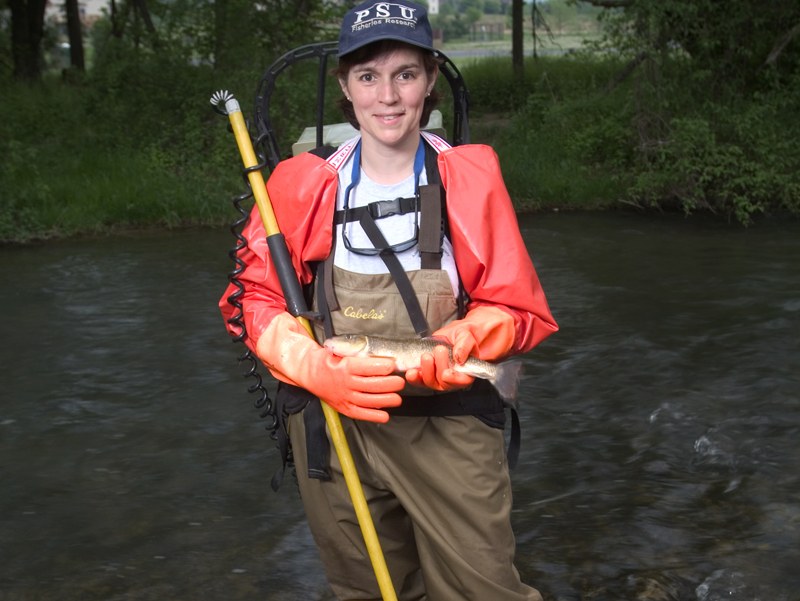Fisheries biologists work in a number of different areas that focus on fish, their habitats, and people.

A fisheries biologist at work
A fishery research biologist:
- studies how aquatic life interacts with its habitat and how people change these interactions through their actions;
- may work on the life cycle of brook trout in a local stream or on understanding the effect of fishing on Atlantic swordfish.
Another type of fisheries biologist is a fishery manager, who may:
- use research results to improve the quality of a fishery and to meet people's goals;
- change regulations to increase the catch rate and size of largemouth bass in a particular lake;
- produce fish and shellfish for markets and stocking programs (aquaculturists).
People trained in fisheries biology can also work as educators and conservation officers. Most fisheries biologists work for state or federal fish and wildlife agencies, such as the Pennsylvania Fish and Boat Commission or the U.S. Fish and Wildlife Service, or private consulting firms. Starting a career as a fisheries biologist takes a four-year college degree in fishery science or aquatic biology.

